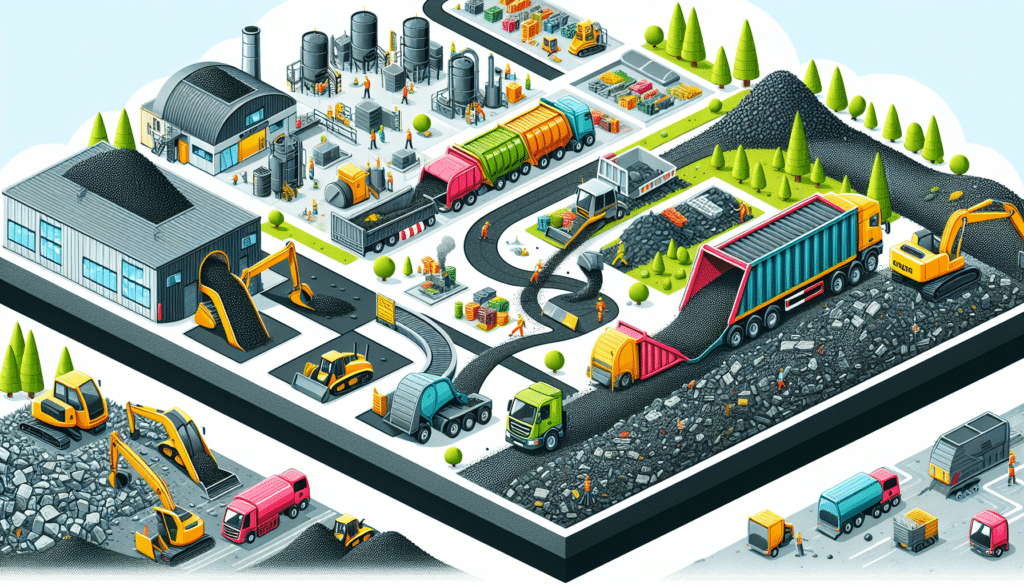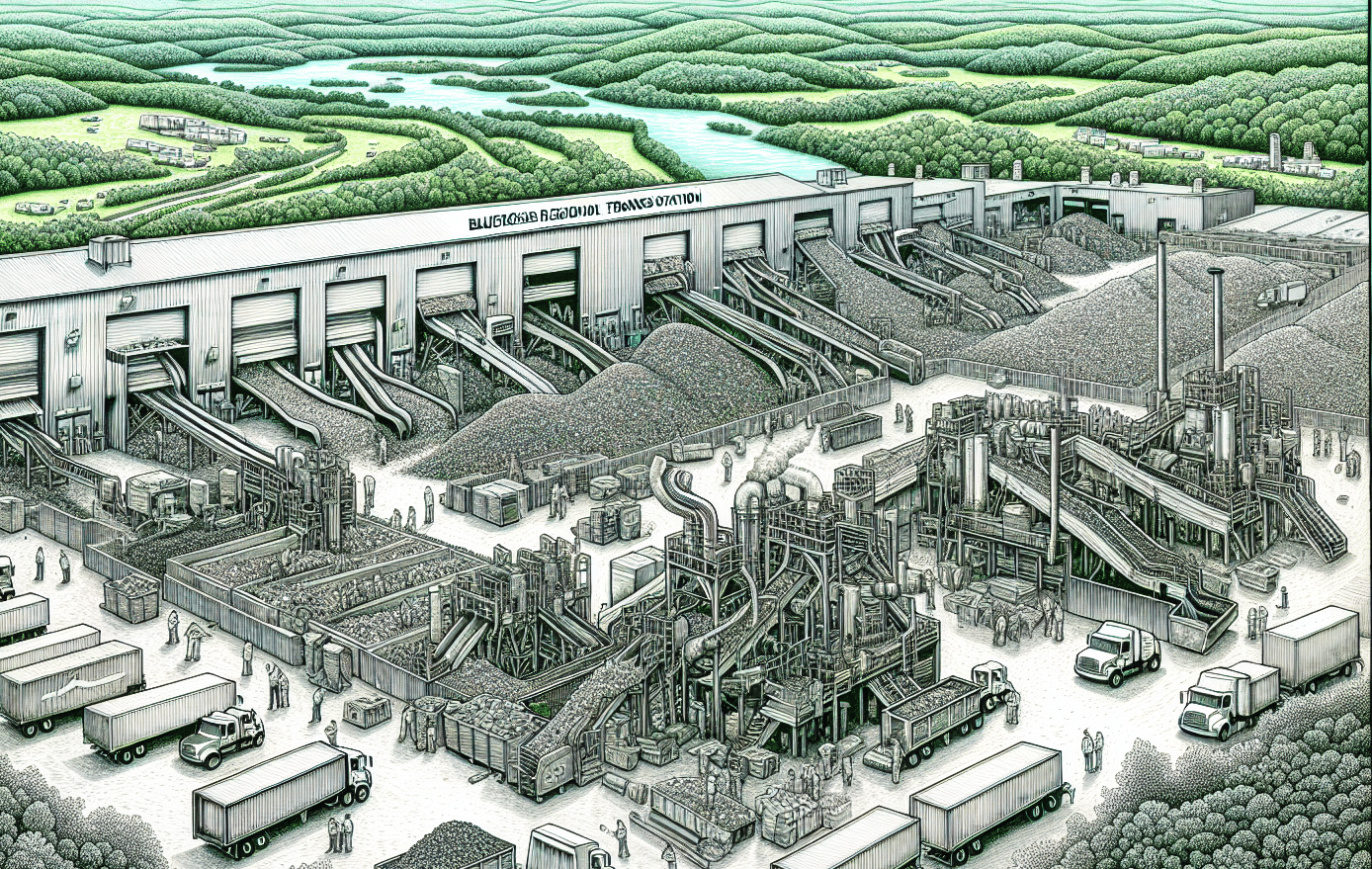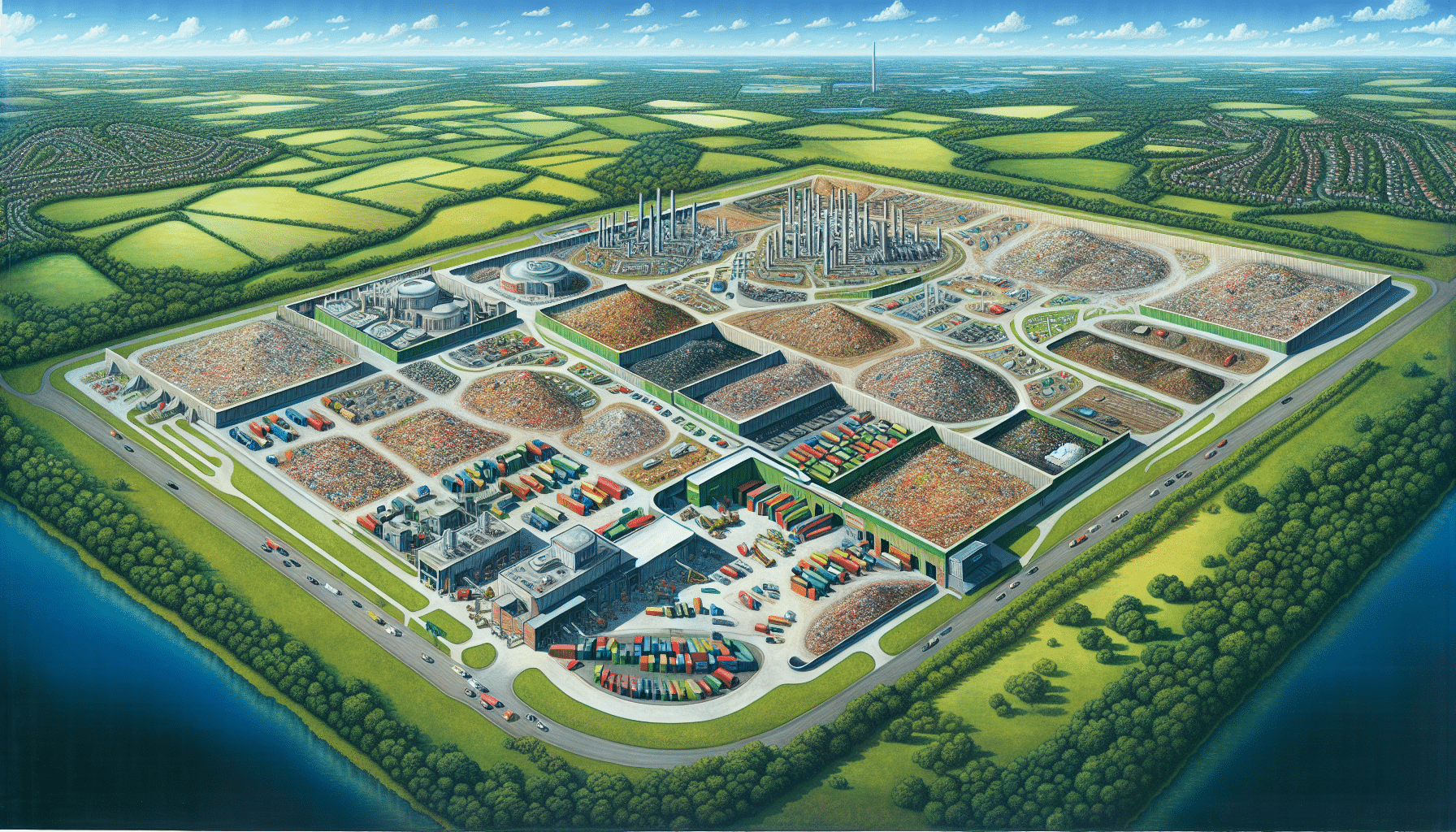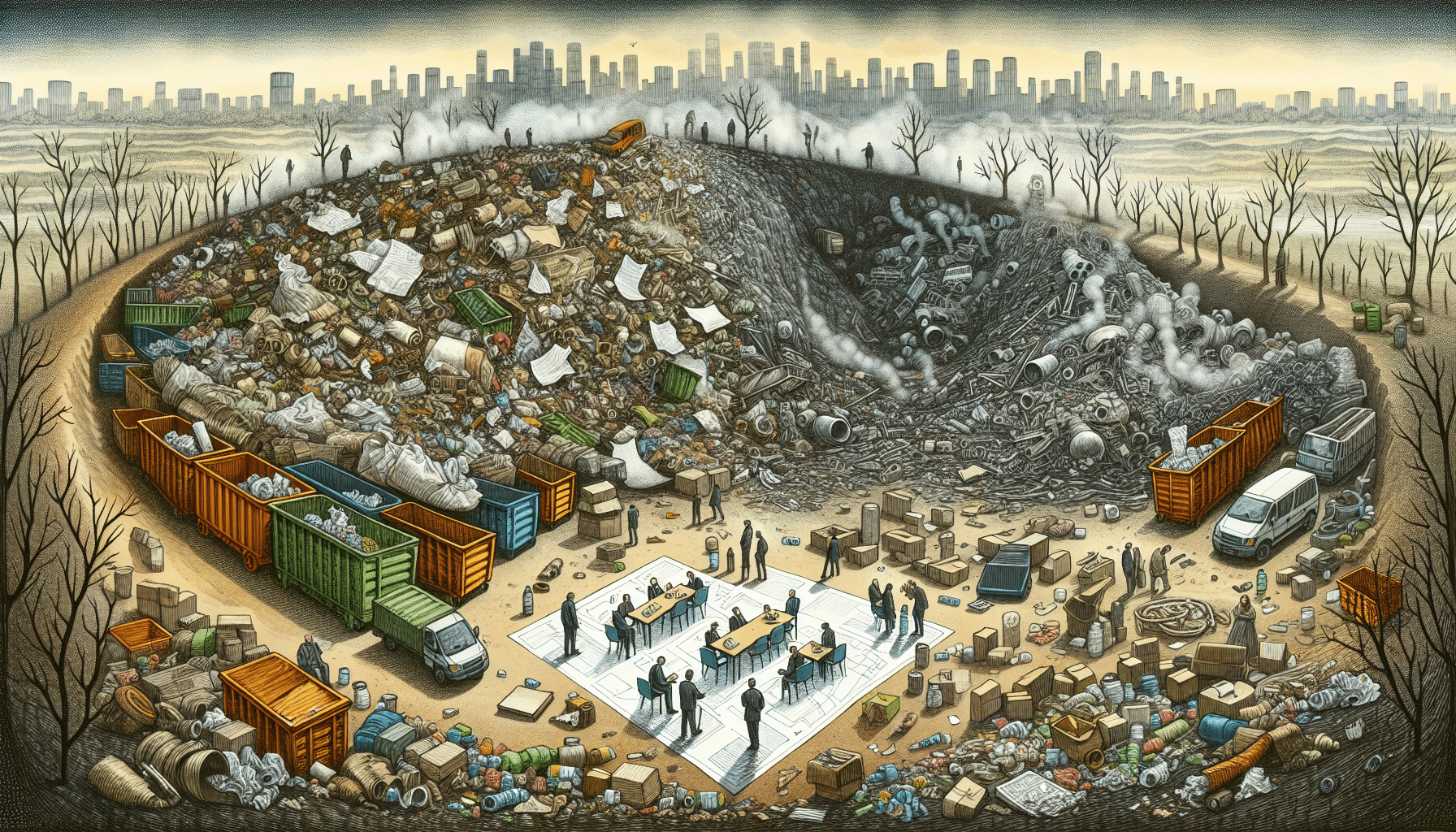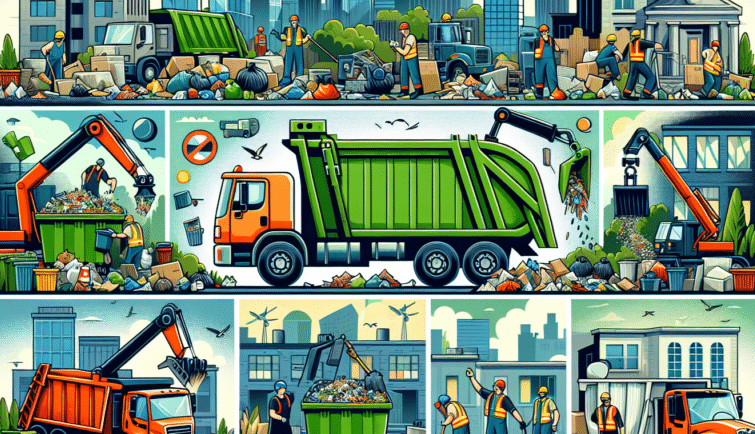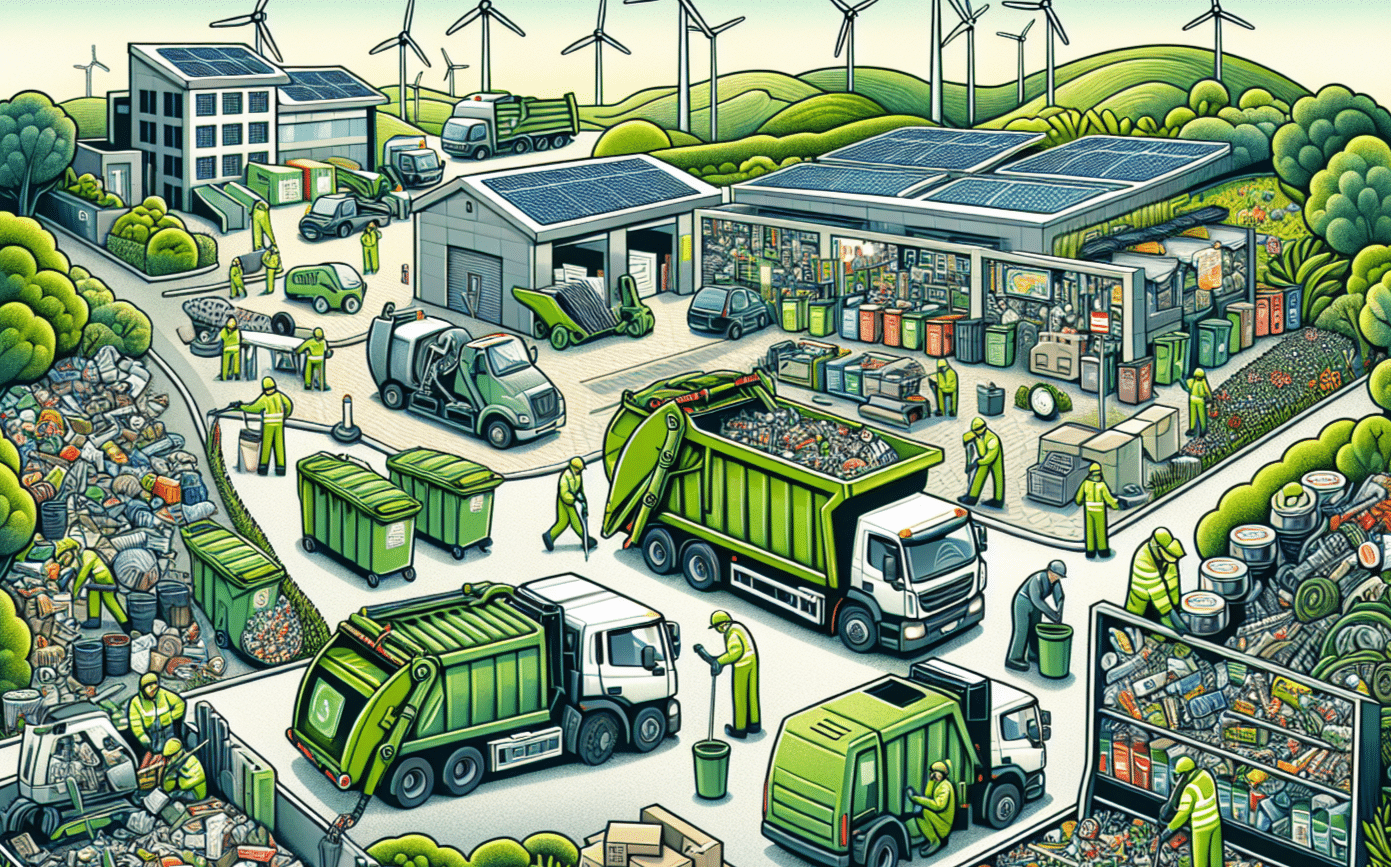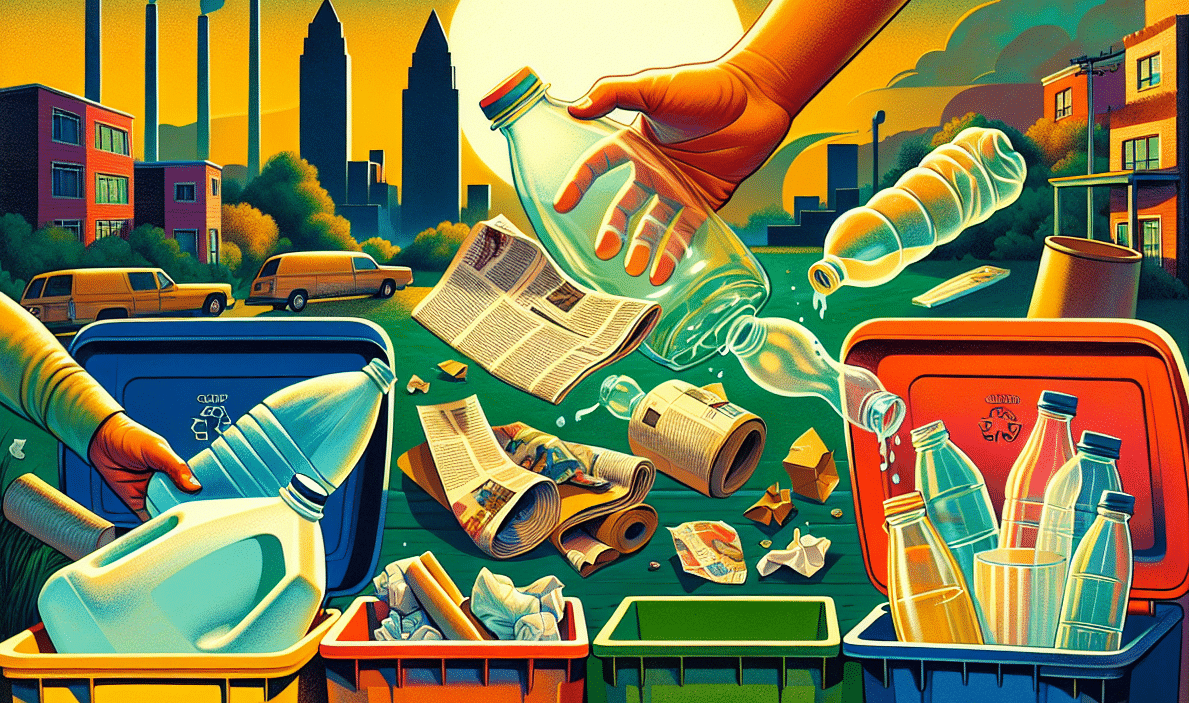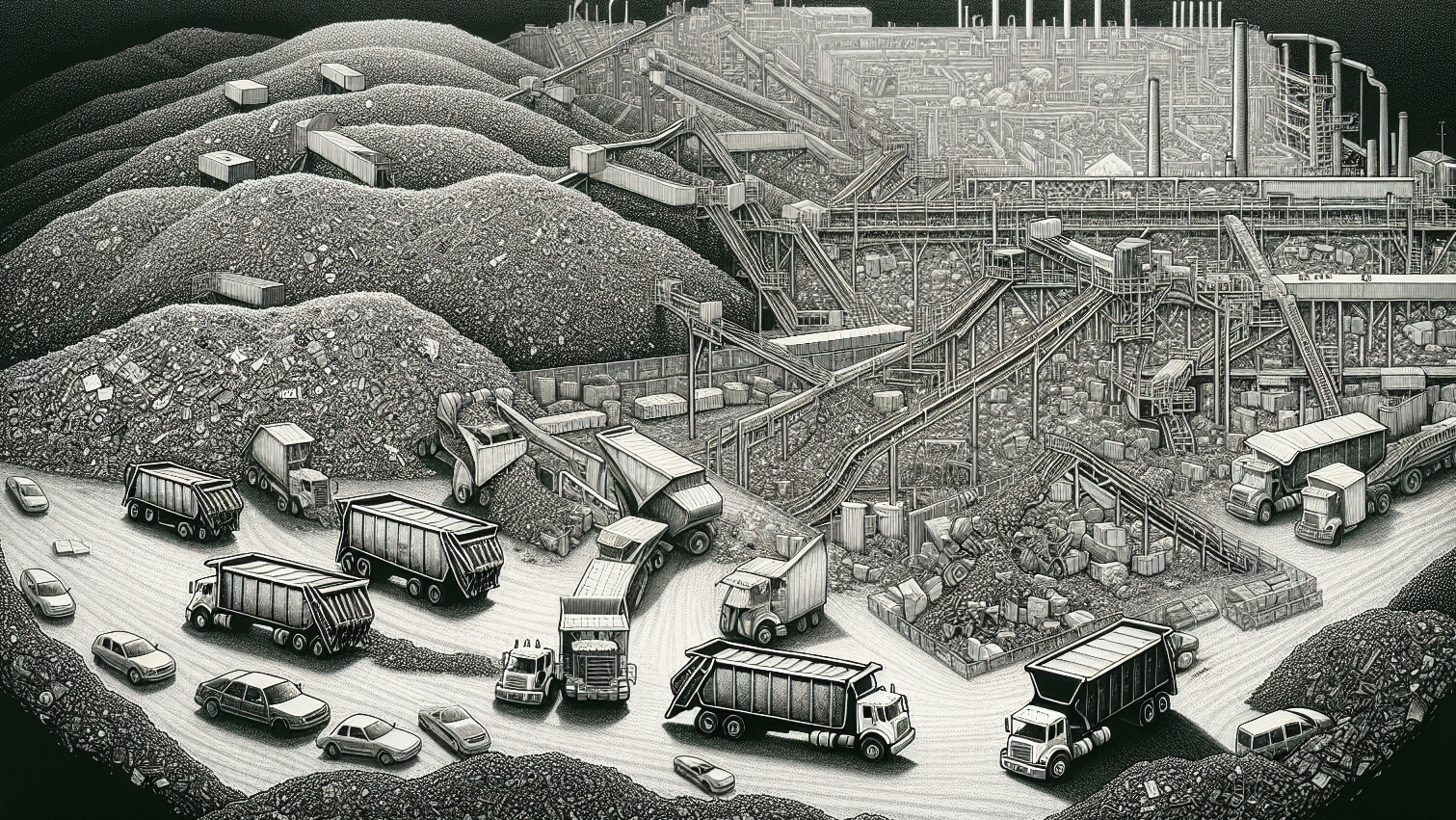When it comes to asphalt disposal, you want efficient, environmentally sound, and legally compliant methods. This guide cuts through the confusion, offering straightforward information on recycling, professional removal services, and landfill guidelines for responsible asphalt waste management.
Key Takeaways
- Asphalt disposal options include recycling at local facilities, hiring professional junk removal services, and using landfills as a last resort, each with different environmental and economic implications.
- Recycling asphalt involves a process where old asphalt is repurposed into new materials, playing a significant role in over 80% of road construction, and is supported by using asphalt cement as a strong binder.
- Proper asphalt disposal requires adherence to environmental and legal standards. The Federal Highway Administration and community recycling guidelines set regulations to ensure responsible disposal practices.
Navigating Asphalt Disposal Options
The journey of asphalt disposal requires navigating many options, each having distinct environmental footprints and legal implications. Whether transforming old to new at recycling facilities, leveraging the muscle of junk removal services, or utilizing landfill sites as a last resort, the goal remains consistent: properly dispose of asphalt in an eco-conscious manner. This critical first step sets the tone for how we honor our commitment to the planet while attending to our construction needs.
Local Recycling Facilities
Pursuing sustainable asphalt material disposal takes us to local recycling facilities, where old pavements, including broken concrete, are repurposed. Here, the alchemy of recycling transforms used asphalt into new asphalt, perfect for constructing new roads, driveways, and other paving materials. We contribute to a greener and more sustainable future by choosing to recycle asphalt.
With facilities like Laney Recycling Center at the forefront, we can witness cost efficiency and environmental responsibility harmoniously intertwine, making recycled asphalt one of the most cherished resources in modern infrastructure.
Professional Junk Removal Services
If you prefer not to get your hands dirty, professional junk removal services are available to handle the burden of asphalt disposal for you. With a simple call, these services swoop in to clear the debris, adhering to weight limitations and offering a pain-free alternative to the heavy lifting involved in construction cleanup.
Despite the cost, their convenience is unparalleled, leaving you free to focus on the craftsmanship of your projects.
Utilizing Landfill Sites
In some situations, after exhausting recycling options, landfills become the inevitable destination for asphalt disposal. Here, one must tread carefully, weighing the environmental impact and adhering to stringent legal regulations to ensure that our last-resort disposal methods do not become a legacy of pollution for future generations.
The Process of Recycling Asphalt Materials

Asphalt recycling is a harmonious blend of science and sustainability, transforming chunks and millings into new asphalt mixtures through heat and chemistry. From the fiery embrace of hot mix asphalt to the cool innovation of cold mix asphalt, the recycling process is a testament to human ingenuity, turning the old into robust new pavements.
The repurposing revolution is underway, with recycled asphalt now a cornerstone in over 80% of road construction.
From Old to New: Creating Recycled Asphalt Pavement
Central to this revolution is the converting old asphalt into recycled asphalt pavement (RAP). Enterprises like California Commercial Asphalt exemplify this process, producing asphalt mixes that meet or exceed the rigorous standards of new materials.
This metamorphosis from worn to world-class is evidence of the circular economy’s power in the paving industry.
The Role of Asphalt Cement in Recycling
The strong binder, asphalt cement, is the key to asphalt recycling’s success. Retaining its adhesive prowess through the recycling journey, this hero of cohesiveness plays a pivotal role in blending old materials into new mixtures, ensuring the roads we travel are both recycled and resilient.
Advantages of Using Recycled Materials
The benefits of using recycled materials in construction extend beyond just environmental stewardship. Economically, using recycled asphalt pavement offers reduced costs and enhanced durability, ensuring that the infrastructure we build today can withstand tomorrow’s trials while keeping our environmental conscience clear.
Safe and Sustainable Asphalt Removal Techniques
Safe and sustainable asphalt removal extends beyond mere technique; it embodies a commitment to safeguarding both workers and the environment. From donning the armor of protective gear to cordoning off the battlefield, each step is taken with the utmost care to ensure that the removal process leaves no scars on the earth or its inhabitants.
Handling Hazardous Waste Components
If asphalt turns into a carrier for hazardous waste, the risks increase. The presence of tar, metals, and oils within the material demands a vigilant approach, starting with rigorous testing and culminating in the meticulous disposal of contaminants at specialized facilities. Neglecting this could mean more than just a stain on the environment; it could lead to costly legal repercussions, making due diligence a non-negotiable step in asphalt removal.
Choosing the Right Equipment for Asphalt Removal
Choosing the right equipment for asphalt removal is like finding the perfect key for a lock. Whether it’s the precision of a jackhammer or the might of an excavator, the success of the removal process hinges on matching the tool to the task, ensuring a safe and efficient clearance of the old to make way for the new.
Innovative Uses for Recycled Asphalt

Recycled asphalt serves more than just road paving; it also opens avenues for innovation. From the humble garden path to the stability of parking lots, the adaptability of recycled asphalt has proven itself time and time again. As a material, it offers a canvas for creative expression and practical application, proving that nothing is ever truly wasted in the right hands.
Enhancing Landscaping and Garden Projects
For landscaping and garden projects, recycled asphalt offers a surprising and efficient means for aesthetic and practical improvements. Its versatility extends from providing a stable base for pavers to crafting artisanal firepits, signaling that sustainability can indeed be synonymous with beauty.
Building Durable Driveways and Parking Lots
Recycled asphalt’s durability is not limited to highways; it also benefits driveways and parking lots that endure daily wear and tear. Proper construction techniques and routine maintenance ensure that surfaces created from recycled materials stand the test of time, offering a resilient and responsible choice for homeowners and businesses alike.
Cost-Effective Ways to Dispose of Asphalt
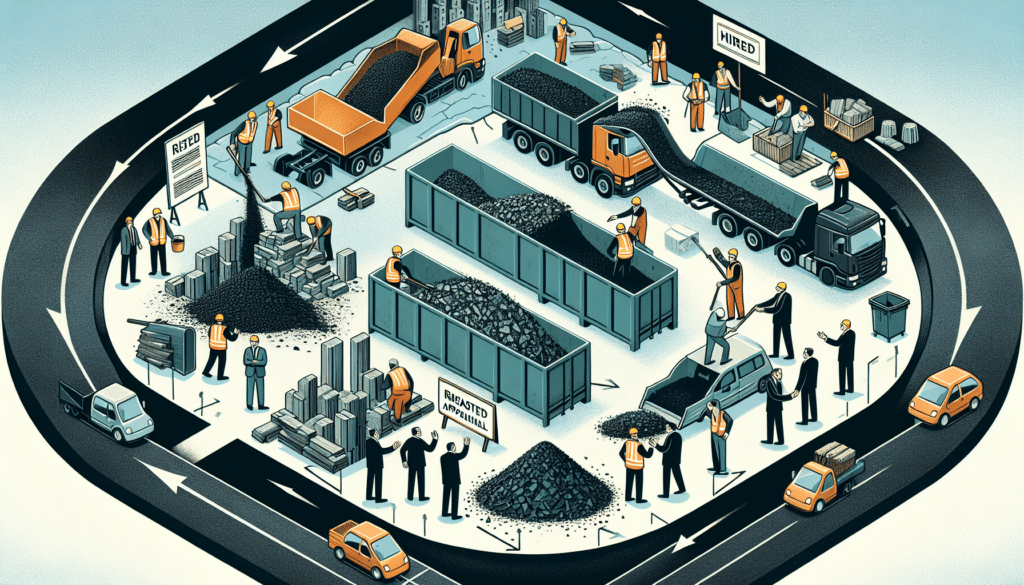
Besides the clear ecological benefits, the affordability of responsible asphalt disposal methods, including concrete disposal, is equally attractive. From the affordability of renting dumpsters to the unexpected profit from selling broken asphalt, there exists a spectrum of options to suit every budget, making financial sense while doing our part for the environment.
Renting Dumpsters vs. Hiring Trucks
The choice to rent dumpsters or hire trucks for asphalt disposal usually depends on assessing cost, convenience, and capacity. While dumpsters offer a fixed holding space for debris, trucks provide mobility and the potential for immediate disposal. The choice ultimately lies in the scale of the project and the proximity of disposal facilities.
Finding Buyers for Broken Asphalt
The digital age has simplified the process of finding buyers for broken asphalt. Online platforms like Craigslist and Freecycle are modern-day marketplaces where one person’s waste becomes another’s wealth. By offering asphalt for free, with the caveat of pickup responsibility, the reuse cycle is perpetuated, reducing disposal costs and fostering community resourcefulness.
Environmental Protection and Legal Compliance in Asphalt Disposal

Environmental integrity and compliance with legal standards form the foundation of asphalt disposal. Contaminated materials, if mishandled, can lead to dire consequences, making the observance of regulations not just a matter of compliance but a moral imperative in preserving our planet for future generations.
Federal Highway Administration Regulations
The Federal Highway Administration (FHWA) advocates for environmentally responsible asphalt disposal, driven by the Resource Conservation and Recovery Act principles. Through research, policy, and advocacy, the FHWA sets the benchmark for using recycled materials in road construction, ensuring that our infrastructure projects reflect our commitment to the planet.
Community Recycling Area Guidelines
On a local level, community recycling guidelines provide direction for asphalt disposal, establishing a path in line with regional environmental principles. Understanding and adhering to these guidelines ensures that our efforts to recycle or dispose of asphalt are not in vain but contribute to a collective sustainability vision.
Choosing the Right Disposal Facility
Selecting the right facility that reflects our environmental principles and meets our practical needs completes the asphalt disposal process. Proximity, certifications, and recycling capabilities are the cornerstones upon which this decision rests, ensuring that the chosen facility is a partner in our sustainable journey.
Factors to Consider When Selecting a Facility
When choosing a disposal facility, factors beyond convenience must be considered. The facility’s track record, the breadth of its services, and its commitment to environmental standards speak volumes, guiding us toward a choice that echoes our values and ensures the integrity of our disposal practices.
Searching for Facilities Online
Digital resources, like search engines and directories, provide easy access to information about disposal facilities. A thorough online search can unveil facilities with the credentials and services to meet our disposal needs, while reviews and ratings help paint a picture of their reputation and reliability.
Summary
As we conclude our guide, the path from asphalt disposal to recycling becomes a road well-traveled, illuminated by the knowledge of responsible practices, cost-effective methods, and innovative applications. Let this be the impetus for a paradigm shift in how we view and manage construction waste, transforming the mundane task of disposal into an act of environmental artistry.
Frequently Asked Questions
Is asphalt paving recyclable?
Yes, asphalt pavement can be recycled multiple times for roadway use, offering the same durability as virgin materials and reducing construction costs.
How does recycled asphalt impact the environment compared to new asphalt production?
Recycled asphalt has a significantly lower environmental impact than new asphalt production. It conserves natural resources, minimizes waste, and reduces greenhouse gas emissions, making it a more sustainable choice overall.
Can I dispose of asphalt at my local landfill?
It’s important to check local regulations and landfill policies, as they vary. Consider recycling or repurposing options before resorting to landfills.
Is it more cost-effective to rent a dumpster or hire a truck for asphalt disposal?
Renting a dumpster is usually more cost-effective for large amounts of debris, but hiring a truck may be efficient if there is a nearby disposal facility. Consider the project’s scope and local options when making your decision.
What safety precautions should be taken during asphalt removal?
Wearing protective gear, securing the work area, and using the right equipment are essential for preventing inhaling harmful fumes and protecting against physical hazards during asphalt removal. These precautions are crucial for ensuring safety on the job.
